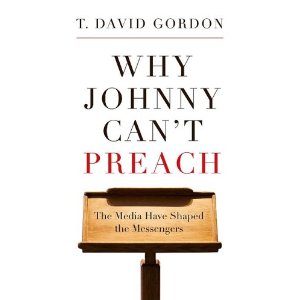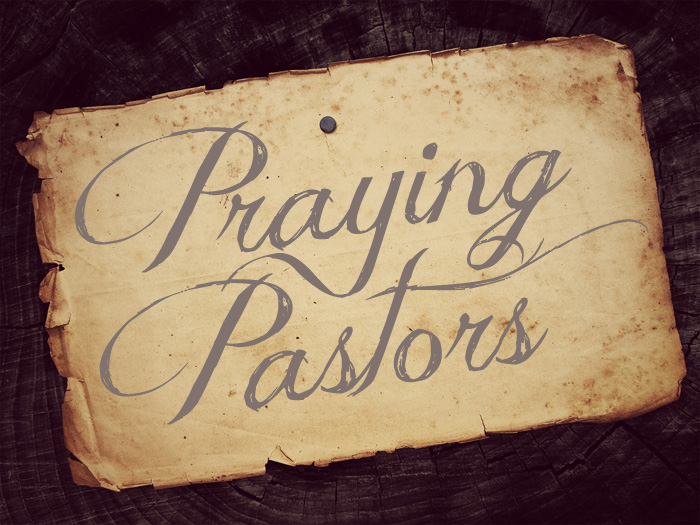 Every few weeks I try to write a “Pastoral Postcard,” a post that aims to encourage pastors in the work of ministry. I take one verse of Scripture and apply it to the blessings and afflictions every gospel minister experiences. The postcards originate from a time when I was preaching through 1 Timothy while reading Thomas Boston’s The Art of Man-Fishing. As a young pastor myself, I tried to channel my inner Boston and write short-ish notes to encourage my labor. Hopefully they can be some encouragement to you.
Every few weeks I try to write a “Pastoral Postcard,” a post that aims to encourage pastors in the work of ministry. I take one verse of Scripture and apply it to the blessings and afflictions every gospel minister experiences. The postcards originate from a time when I was preaching through 1 Timothy while reading Thomas Boston’s The Art of Man-Fishing. As a young pastor myself, I tried to channel my inner Boston and write short-ish notes to encourage my labor. Hopefully they can be some encouragement to you.
“If anyone aspires to the office of overseer, he desires a noble task. Therefore an overseer must be above reproach.” – 1 Timothy 3:1-2
Pastor, you are to be a boring picture of godliness.
When the great apostle requires that elders be “above reproach” he is requiring that your life be one free of popular suspicions and charges of sin or immorality. This doesn’t mean you are to be perfect, rather it means that your life will be visibly virtuous.
A VISIBLE LIFE
Faithful shepherds always lead their sheep from the front, thus a faithful pastor will ordinarily be leading from a place of visibility. You know this to be true. From the minute you – and your family – walk through the church doors you are walking into a holy display case. Your actions will be observed and your words will be heard. From the moment you enter this display case the Serpent will try to smash its shell. He will tempt your congregation to be cruel in their judgment of you, so that you will crumble. Or, should your congregation be faithful, he will try to cause you to crumble under your own sinful expectations of perfection that you cry out in despair, “I am not worthy!” If theses schemes don’t work, be assured that the Worm is still slinking around in his sly subtlety.
Have you ever noticed the great number of pastors who delight in keeping to themselves, pastors who cherish seclusion? You are likely one of them. God seems pleased to create His lieutenants in such a way that their introversion leads unto daily swims in the deep things. Remind yourself that the Serpent is pleased by this trait as well. He is familiar with the Spirit’s Sword and the Sovereign One’s desire for shepherds to be examples to the flock. Therefore, you can expect him to aim fiery darts of sinful isolation at your breastplate. To be an example you must be visible, so why should he not try to get you to be invisible? If you keep to yourself, have no friends, stay away from regularly engaging with your town, and don’t regularly lead your sheep in public ways, know the Worm is probably winning the battle. Winning by keeping you invisible.
Cultivate then a heart that mirrors the eternal Three in One, a heart that is outgoing and communicative. Don’t only open the Good Book in your study or on the sacred desk, open it with brothers and sisters as you go from home to home to offer the Whole Counsel. Sin and Satan want you to be sinfully invisible or visibly sinful; God requires that you be visibly virtuous.
A VISIBLY VIRTUOUS LIFE
The apostle’s understands visible virtuousness for he exhorts his son in the faith to, “Set the believers an example in speech, in conduct, in love, in faith, in purity.” This is what it means to be above reproach, to be visibly virtuous.
Be visibly virtuous in speech. You are called to speak of the unsearchable riches of Christ, but don’t let the Good News come from your mouth only when you ascend to the desk. Season all of your speech with the savor of Christ. Resist the temptation of your age to casual colloquialism, but labor in the language of the Loved One. If your speech is accused, let it be accused of having too much faith, hope, and love. Load your heart with the treasures of Christ so that they pour from your lips.
Be visibly virtuous in conduct. You are placed in the holy display case because the Spirit is at work in you to exude a kind of godliness that shapes your sheep. Your actions are to be echoes of the Savior, even if they are often faint echoes. You must daily slay the pride of life to that your life displays and declares the exalted Prize of Eternal Life.
Be visibly virtuous in love. Love is the only thing that will remain in eternity, so let it be the dominant accent of this life. The Serpent will labor to enslave you to love of self or love of the world, but you must terminate his labor with the Spirit’s power. Let your ministry be a two chord song of love, love for your God and love for your people.
Be visibly virtuous in faith. Everything depends on faith, for whatever is not from faith is sin. You were saved by faith and you are being sanctified by faith. The eyes of faith are ones that delight in looking above, looking to where Christ is seated. His is your life and faith alone is what takes hold of that life. Be on guard against doubt and despair, things that come from looking down far too much. Mr. M’Cheyne has it right when he exhorts, “For every look at self, take ten looks at Christ.”
Be visibly virtuous in purity. You know how much the Serpent delights to slay shepherds through impurity, so expect peculiar temptations in this area. Be filled with the Spirit and give no opportunity to the Worm. He wants a foothold here so that he might give a scandal to the scandalized world, but you must close the door of your heart, lock it, and throw away the key. Pray for a mind captivated by, and with, the Beautiful One.
Being above reproach means being beyond spiritual suspicion . . . thus, you shouldn’t surprise your sheep. You should be gloriously boring in godliness. Visibly virtuous pastors are boringly bright pastors who shine and burn for the glory of God.









